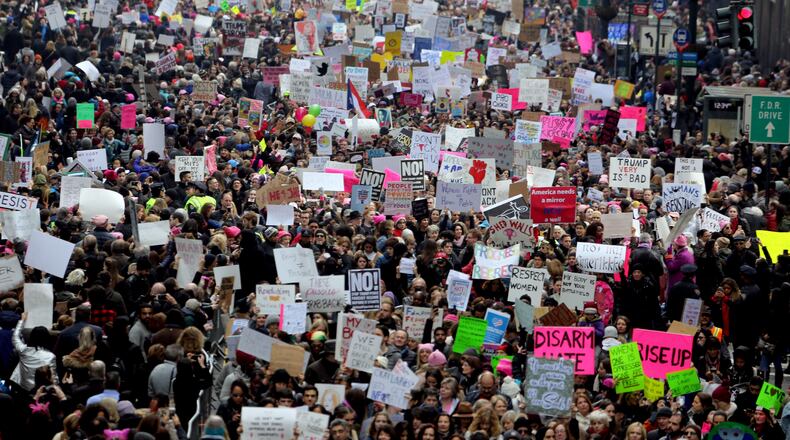Organizers of Women’s March Chicago want you to know that, contrary to reports by me and other media sources, they are not cancelling a planned march in January.
“That’s because we never planned to have one,” Harlene Ellis, an organizer and spokesperson for Women’s March Chicago, explained in a telephone interview.
After drawing thousands to Grant Park in two years, the Chicago group decided last spring to hold a march in October this time in order to fire up participation in the midterm elections.
Since that left little time or resources for another January march, organizers decided to have a day of service on Jan. 19 called “Operation Activation.”
And while the Chicago group stands firmly behind its denunciation last spring of hate speech in any form, members also insist that their march decision had nothing to do with the anti-Semitic and anti-LGBTQ statements by Nation of Islam Minister Louis Farrakhan, who has been linked to some of the New York-based national Women’s March leaders.
Yet, as much as Women’s March Chicago is an entirely separate organization from the national Women’s March Inc., the group shares names and agendas that are similar enough for them to often be confused for one another — and that’s a big headache.
“We’ve received questions almost every day,” said Ellis, “from people asking, ‘Will there be another march?’ and ‘Are you anti-Semitic?’ “
No, but the confusion is understandable and it spreads quickly, causing a national uproar that threatens to divide the women’s march movement.
National co-chair Tamika Mallory sparked an uproar in February when the Anti-Defamation League reported her attendance at the Nation of Islam’s annual Saviour’s Day program in Chicago’s Wintrust Arena.
There Farrakhan slandered “the powerful Jews” as “my enemy” and “the mother and father of apartheid,” saying, among other paranoid myths, that they supposedly are doctoring marijuana to turn black men gay by blocking their testosterone.
Amid the backlash, Mallory tried to mend fences by denouncing Farrakhan’s divisive rhetoric but praised the help given to her, particularly by women of the Nation of Islam after her son’s father was murdered in the late 1990s.
Yet calls within the march movement for the resignation of Mallory and others who are reluctant to oppose Farrakhan’s inflammatory leadership threaten to divide the entire movement.
My reaction: Here we go again. The minister’s anti-Semitic rhetoric, in particular, has been disrupting interracial appeals of black politicians for more than 30 years.
Among other notables, the Rev. Jesse Jackson in his first presidential campaign in 1984, former Chicago Mayor Harold Washington in his first campaign a year earlier and Barack Obama in his first presidential run in 2008 were called upon to denounce anti-Semitic comments by Farrakhan without committing political suicide by alienating their own political base.
As African-Americans, I think we are particularly obligated to call out hate in all of its forms in our own community or lose our credibility as moral authorities in other communities.
I have often asked why black political leaders have such a tough time denouncing Farrakhan’s bigoted remarks.
Criticizing Farrakhan’s bigoted remarks can be no less tricky than criticizing Trump’s scapegoating of immigrants as racist. Populist demagogues turn such criticism into confirmation among their followers that they must be saying something true, even when they aren’t.
The challenge, then, for black leaders and others who want to build true multiracial and multi-gender coalitions is to renounce hate and stand together with allies for truth against divisive messages that ultimately become self-defeating.
About the Author
Featured

